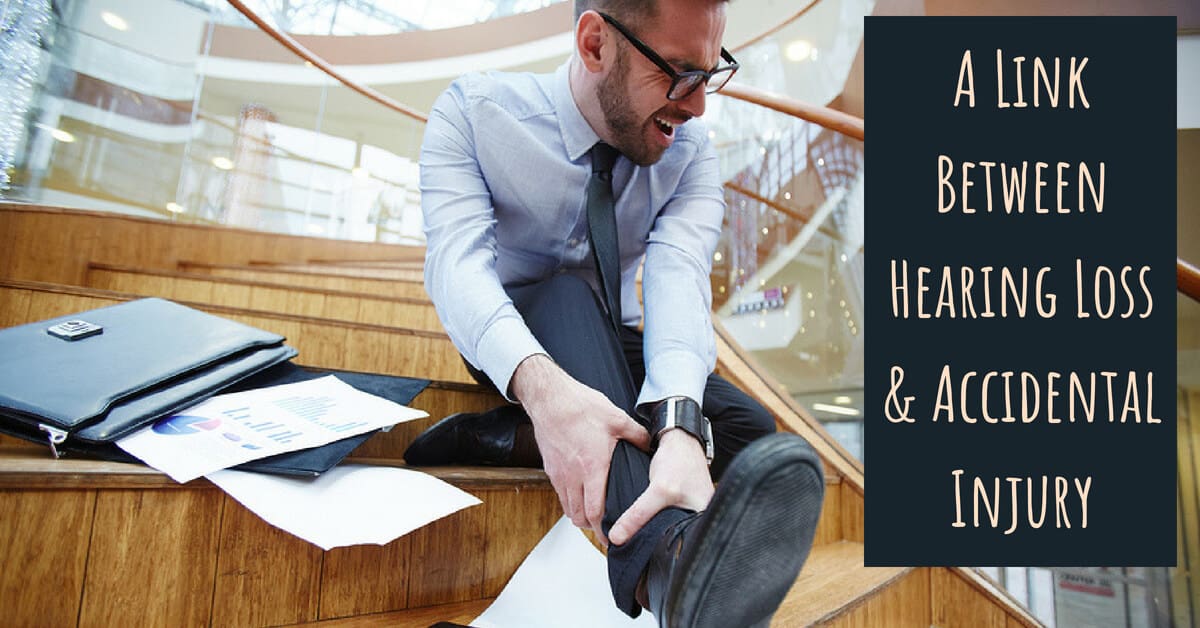Untreated hearing loss doesn’t just strain your ability to communicate, it endangers your total health by significantly increasing your risk of accidental injuries. Having hearing issues means you may be unable to detect important sound cues that alert you to danger. Hearing loss also strains your cognitive abilities, making you less coordinated. Combined, leaving hearing loss unaddressed can be a risk to your physical wellbeing.
New Statistics
Research drawn from the National Health Interview Survey looked at data from 2007-2015 finding correlations between hearing loss and the incidence of physical accidents. Interviewees self-reported their degree of hearing loss and also any accidental injuries they incurred over a 3-month period. In that span of time, people who reported having some degree of hearing loss were over twice as likely to experience an accidental injury.
The survey looked at three categories of accident: leisure, work-related and driving. While the rate of accident for the population reporting “excellent hearing” is 2% for all types of injuries, that risk jumps to 5% in populations who report coping with some degree of hearing loss.
Surprisingly, the degree of hearing loss reported didn’t have much effect on increasing or decreasing the risk of accident. People who reported “minor” hearing loss were just as likely to experience an accident as those reporting “severe” hearing issues. Researchers reflect that part of this discrepancy may be the subjective element of the survey. Subjects self-reported their hearing loss, so over- and under-estimating may have occurred when describing their hearing challenges. The findings drawn from the survey data show a correlation that would benefit from further research.
Researchers pose that compromised hearing keeps people from recognizing sound cues that are critical for their physical safety. From the sound of other vehicles to workplace equipment alerts, being unable to hear fully can slow your ability to react to danger.
Cognitive Strain
Hearing loss has also been linked to falling accidents and home injuries. Why does hearing loss contribute to accidents, even in familiar and quiet environments? A big part of the issue is the cognitive strain hearing loss places on the brain. When we lose some of our ability to hear, our brain is only receiving part of the sound information coming to us. Our brain has to work overtime to fill in the gaps of information. Think of it like constantly trying to fill in a crossword puzzle where you only have half of the clues- it requires a lot more guesswork and pattern-finding then full, healthy hearing does.
As the brain focuses on detecting and deciphering sound cues, it draws attention and focus away from other critical functions – in particular, balance and coordination often suffer when untreated hearing loss is present. When the brain is taxed with extra hearing challenges, we are less able to track our bodily movements and can easily make mistakes about our spatial awareness. All this leads to a greater likelihood of having an accidental fall or injury.
The link between falling injuries and hearing loss has been well-studied. On average, untreated hearing loss increases the risk of a person having a falling accident by 300%, with greater degrees of hearing loss related to greater risk of injury.
Treatment Is Key
Hearing is part of your overall health and the treatment of hearing loss can have benefits for your total health and wellbeing. Although most hearing loss is permanent, meaning it cannot be restored in your ear, most hearing loss can be effectively managed with hearing aids.
Hearing aids give you access to sounds that your ear is no longer able to detect unassisted, amplifying difficult frequencies and helping you navigate noisy and challenging sound environments. Using hearing aids helps protect you from accidental injury both by alleviating some of the mental burden of hearing loss and keeping you alert to sound signals in your environment.
If you are currently facing hearing issues, let Desert Valley Audiology help. We know the value of health hearing because we see it every day in the lives of our patients. From comprehensive hearing testing to an exceptional selection of hearing aids and assistive devices and three convenient locations throughout the Las Vegas area, we can help you hear better today.

